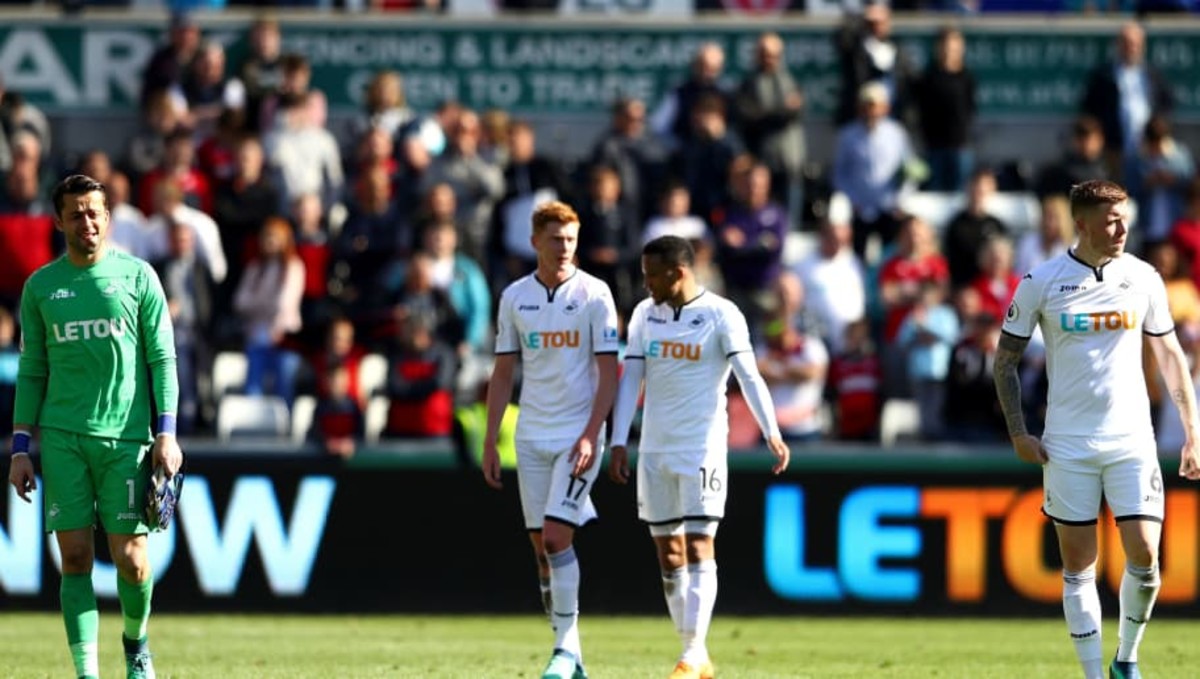How Finding Footballing Identity Can Help the 3 Relegated Premier League Sides Return to Top Flight

This may be hard to believe, but once upon a time West Bromwich Albion played good football. Yes, it's unfathomable.
But under Tony Mowbray, West Brom's 2007/08 Championship season saw the Baggies play some of the most exciting football the second tier has ever seen. They scored 88 goals, almost 20 more than the next team.
These were the days of Jonathan Greening and Robert Koren creating chances for a deadly Kevin Phillips. Gera backflips were a weekly occurrence. West Brom won the Championship ahead of a certain Stoke City side and went into the Premier League with a reputation for playing attractive football.
They would get relegated the next season, but it would only take them another campaign in the Championship to get back to the top flight. But that's when their reputation was lost. Because West Brom did exactly what Swansea ended up doing. They sacrificed their footballing identity simply to preserve their Premier League status.
Remember when Swansea came into the Premier League? Hailed as the Barcelona of South Wales, that Swansea side could pass you to death.
In their debut Premier League season, Swansea averaged 56% possession - the third highest in the league, behind Manchester City and Arsenal, two teams they beat at the Liberty that season. Leon Britton had a pass completion rate of 93.4%, the highest of any player in the Premier League. They had an identity under Brendan Rodgers.
What do Swansea represent now? The re-signings of Wilfried Bony and Andre Ayew smacked of desperation, of a club that was once a proud passing side now resorting to splashing the cash looking to recreate the glory days with players who are no longer up to the task.
Swansea didn't realise that that boat had sailed, that they had killed the goose (or swan) that laid the golden egg. They'd given their identity away just to stay in the Premier League.
West Brom's signings, with both managers and players, smacked of the same desperation of simply wanting to remain. Michael Appleton, Steve Clarke, Alan Pardew. These were never managers who were going to stamp their authority on the team or play a certain style, they were there to prevent the worst happening, nothing more.
As a result, West Brom became the club that nobody outside of the Hawthorns cared about, the team became a collection of players who didn't fit together particularly well. Chris Brunt playing as a part of a back six to prevent any chance of conceding goals summed it all up.
Even Stoke have been guilty of it. Everyone knew Stoke's reputation, they played rugby instead of football. Some fans complained, but it worked, and they revelled in it.
They sung Sweet Chariot, they embraced Rory Delap's long throw technique and prided themselves on their defensive prowess.
Then they sacked Pulis, and settled with Mark Hughes before the inevitable downturn in form and ultimate relegation. Compare these situations with that of Leicester, or Southampton. Clubs who have stayed true to what got them promoted in the first place. Leicester with their counter attacking 4-4-2 formation, and Southampton with their shrewd transfer market moves and use of their academy.
All three relegated sides from this 2017/18 season have this in common - they all once had a footballing identity, and all three surrendered it to take the safer option and preserve their Premier League status. If these clubs want the best possible chance of getting back to the top flight at the first time of asking, they need to rediscover what got them there in the first place.










